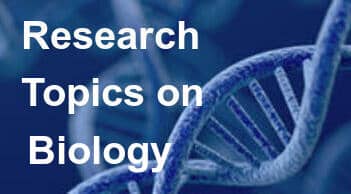Epidemiology
Epidemiology deals with the study of the distribution (frequency, pattern) and determinants (causes, risk factors) of health-related states and happenings (not just diseases) in defined populations using scientific, methodical, and data-driven methods. The specified population can be within a community, society, state, country or global.
The measurement of illness outcomes in relation to a population at risk is a key component of epidemiology. Research population is nothing but participants who share a common connection between them.
Individual decisions may be influenced by epidemiological observations, although they are primarily concerned with groups.
Another objective of epidemiology is to track or monitor time patterns to see which diseases are increasing or decreasing in occurrence and whose distribution is changing.
Global Warming Threat
Global warming is the continual warming of the Earth's climate system as a result of human activity, particularly fossil fuel burning, which elevates heat-trapping greenhouse gas concentration in the atmosphere. It all started since the first Industrial Revolution.
Climate experts have decided that we must constrain global warming to 1.5 degrees Celsius by 2040 in order to avoid a future in which the worst, most severe effects of global warming are seen in everyday life around the world: Droughts, wildfires, floods, tropical storms, and other natural calamities These impacts affect everyone in some way, but they are felt most acutely by the poor, economically marginalized, and people of colour, for whom climate change is frequently a primary driver of poverty, displacement, hunger, and civil strife.
The real kicker is that, as part of the 2015 Paris Climate Agreement, governments around the world have publicly pledged to reduce their emissions by setting new targets and developing new policies to meet or even exceed those levels. Disappointing thing is that countries are not working fast enough.
Resistance of Human Immune System
Natural host-resistance mechanisms are important first-line defenses against most mycotic agents, although they are frequently insufficient to provide total protection. For optimum protection, the host relies on immunological responses to provide extra antifungal activity.
Natural resistance mechanisms work together and earlier to either kill or prevent the fungus agent from spreading and infecting additional tissues. Natural effector systems' early protective actions are usually sufficient to allow time for the immunological responses to evolve.
Immune System functions
The immune system serves an important function: it defends your body against hazardous substances, pathogens, and cell alterations that could make you sick. It consists of a variety of organs, cells, and proteins.
You aren't aware of your immune system's existence as long as it is functioning properly. However, if it stops operating effectively because it is weak or unable to combat extremely aggressive bacteria you will become ill. Germs that have never been exposed to your body before are also likely to make you sick. We wouldn't be able to combat hazardous items that enter our bodies from the outside or detrimental changes that occur inside our bodies if we didn't have an immune system.
The immune system's primary functions are as follows:
- To eliminate disease-causing microorganisms (pathogens) such as bacteria, viruses, parasites, and fungus from the body,
- To eliminate disease-causing microorganisms (pathogens) such as bacteria, viruses, parasites, and fungus from the body,
- To combat disease-causing abnormalities in the body, such as cancer cells
- Training in pain coping skills
Immunity falls into three types
- Innate Immunity (naturally developed from birth)
- Adaptive Immunity (developed throughout life when exposed to diseases or when vaccinated)
- Passive Immunity (obtained from other sources)
A recent research by a group of immunology researchers from La Jolla institute of Immunology analyzed and found that up to eight months after infection, the immune systems of more than 95 percent of persons who recovered from COVID-19 had long-term memories of the virus.
Depression Hormones
Depression is a mental illness that affects one's mood and outlook characterized by a loss of interest in activities as well as a sensation of sadness and depression. Even while most people experience sadness or somber for short periods of time, clinical depression is more than just sadness.
Depression isn't a straightforward illness with a clear source. Some persons are more likely to experience depressed episodes than others. It's necessary to speak with your doctor about your symptoms.
Depression can be caused by a variety of factors. Depression may be genetically inherited or due to hormonal imbalance especially Dopamine, Serotonin, and Norepinephrine. Apart from this a case of depression might be triggered by a traumatic event, a massive change, or a personal difficulty. Loss of loved ones, losing job, going through financial difficulties, or going through a major life transition can all have a significant impact on people. Some widely known symptoms of depression include
- Tiredness
- Sadness
- Anger
- Unable to focus or concentrate
- Frustration
- Irritation
- Feeling lazy to do activities
- Feeling alone
- Suicidal thoughts
- Drug or alcohol abuse
Improving the brain's ability to control mood is the ultimate goal in treating the biology of depression. Neurotransmitters aren't the only crucial aspect of the machine, as we now know. But let's not dismiss their significance.
Biology Behind Bipolar Disorder
Bipolar Disorder is a mental illness which takes a person to extreme mood swings, sometimes hypomania and sometimes extreme low or depressed state.
Mood swings might happen once a year or several times a year. While the majority of people will have some emotional symptoms in between, some will not.
Although bipolar disorder is a lifelong diagnosis, following a treatment plan might help you control your mood swings and other symptoms.
In a discovery that could influence future therapy choices, new research study conducted by Ulsan National Institute of Science and Technology (UNIST) in Ulsan, South Korea may have discovered a protein deficit that causes the condition.
Human Cloning and it’s Possibilities
Human cloning can refer to "therapeutic cloning," which is when embryonic cells are cloned to obtain organs for transplantation or to treat wounded nerve cells, among other things. The use of somatic cell nuclear transfer (SCNT) to obtain eggs that may develop into adult adults is more commonly referred to as "human cloning." Human cloning has been proposed as a technique to increase mankind's genetic endowment by replicating individuals of high accomplishment.
However, the challenges and disadvantages are numerous and insurmountable, at least in the existing literature.
Dolly — called after Dolly Parton, (first animal to be cloned) was made by removing the DNA from a sheep ovum, fusing it with a mammary epithelial cell from an adult “donor” sheep, and transplanting the result, which now only carried the donor's DNA, into a surrogate ewe. However, in other species, the process, known as somatic cell nuclear transfer (SCNT), proved to be more difficult.
But the invention of dolly surely started a revolution as there were only 60 papers on Somatic Cell Nuclear Transfer, and within a decade after it turned up to 5870 papers publishing the progress towards SCNT.
PhD in Biology
The Biology Department's mission is to prepare students for careers in one of three large subfields of modern biology: cell and molecular biology, neurobiology, and ecology, behaviour, evolution, and marine biology. Students should be prepared for postgraduate training and eventually teaching and/or research roles in academia, industry, government or nonprofit organizations after completing their PhD.
Are you seeking for a means to get your PhD in Biology in a method that suits your hectic schedule?
HIGS your Ideal PhD Partner!!
HIGS is the place to search for if you need assistance with any of your PhD projects. We understand how tough it is to keep a consistent pace while completing your PhD. It could lead to work-related stress and frustration, which could eventually bleed over into your personal lives. All of this stress and frustration can be prevented with a little support and assistance from HIGS.




